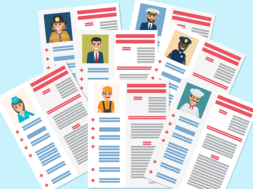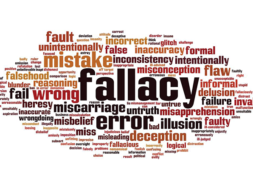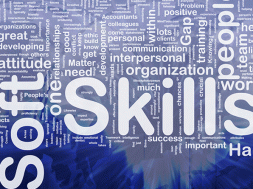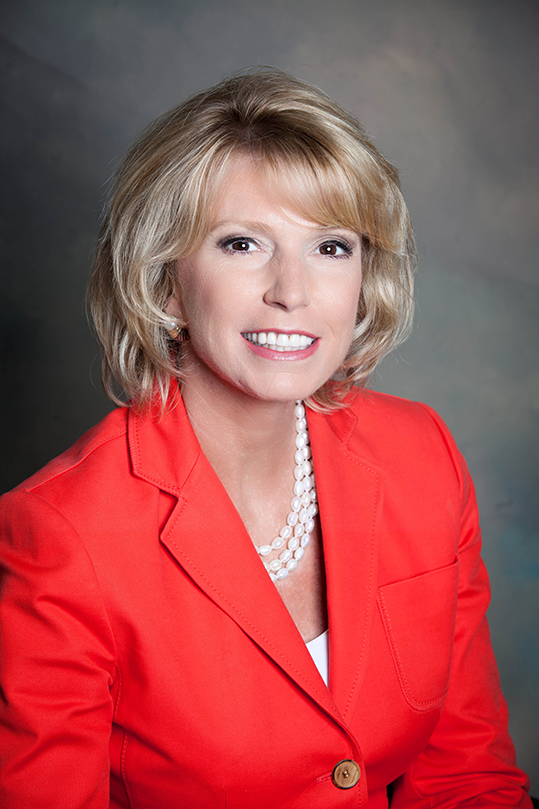
The Principles of Professionalism: Ensuring Students Make the Grade in the Real World
By Pamela Eyring, Owner and President, The Protocol School of Washington®
According to a recent study by the University of Massachusetts, 86 percent of employers considered “soft skills” to be among their most important hiring criteria. In defining “soft skills,” those of us in the protocol arena are talking about very important interpersonal attributes that are actually hard to find in today’s job candidates. These skills include abilities such as conflict resolution, effective communication (spoken and written), critical thinking, professional conduct and appearance, adaptability, teamwork, and business etiquette.
From the UMASS study and other surveys on hiring trends, it’s obvious that today’s college graduates need to be aware that “millennial manners” and a lack of soft skills simply aren’t cutting it in today’s highly competitive job market.
That’s why learning what we refer to as the “Principles of Professionalism” can help distinguish today’s graduates from their competitors. Understanding and activating this unique form of interpersonal intelligence provides the optimum in business decorum to give recent graduates an all-important edge that will sustain and maintain a career now and into the future.
From knowing the proper rules of professional conduct to making first impressions that last a lifetime, make sure your recent or soon to be graduates learn and execute the Principles of Professionalism to help them create a desirable – and hirable – professional brand.
First impressions
Within the first 30 seconds of meeting someone, they form an opinion about you. Only 7 percent of what you say determines what people think about you, the rest is determined by how you look and how much confidence you project. This is the opportunity to shine, to give an air of confidence and openness as well as demonstrating an ability to effectively communicate. And don’t forget eye contact, good posture, professional introductions and a firm, yet reassuring, handshake to both men and women.
The social interview
More and more companies are conducting interviews at lunches, dinners or in other off-site locales. But be aware that these seemingly less formal interviews are often used as a barometer to observe how a job candidate handles his or herself in a social setting. This is where elbows should never meet white tablecloths, where closed mouth chewing will be noted, and where a mobile phone should never be seen nor heard. Also, make sure you never make this most common dining faux pas – snagging the roll of a dining partner. Always remember BMW – your BREAD is on the left; your MEAL is in the middle and your WATER is on the right.
Make it personal
A colleague recently told me a story about a job prospect who was sending her an interview query about an open position. The candidate noted how, after exhaustive research into their company, he realized he was the perfect fit for them. The only problem? The query letter was addressed to one of the prospects main competitors, indicating a multiple cut and paste approach in creating a “personal” cover letter. Graduates, be warned. Take the time to tailor your correspondence to the company where you truly feel you’d like to be employed. And ensure your correspondence is grammatically correct and properly proofed.
Developing your EQ
Emotional intelligence is the concept of learning what drives your thinking and behavior as well as the behavior of others. There are basically five steps to increasing your emotional intelligence. First, you should always identify your feelings and those of others.
Being mindful of what is transpiring in a given moment can provide an understanding of what is needed and not necessarily being communicated.
Second, you should always try and observe your behavior through the eyes of someone else. We know that stress and busy schedules can inhibit our ability to manage emotions, but being mindful of your thoughts, words and actions before you share them can create a habit of being mindful of potentially negative consequences. Third, always put yourself in the other person’s shoes. Showing empathy is one of the hardest things to actively remember because of the self-centered nature of most humans, but when you switch your point of view, you enhance your communication and leadership skills. Fourth, always remember to hit the pause button. Taking a brief pause before you say or do something in the heat of the moment has saved jobs, friendships, marriages and probably lives! And fifth, learn to accept criticism. Whether you’re the boss or the intern, criticism can be hard to take. But instead of taking offense at negative comments or reactions, ask yourself what can you learn from the feedback.
Follow Ronald Reagan’s lead
Our 40th president of the United States was known as the “great communicator” because of his folksy mannerisms but also because of the optimistic nature of his speeches. From the Oval Office to Wall Street, ineffective communication not only harms the bottom line but it can also do much harm to employee morale. So, what are the biggest mistakes new graduates make with ineffective communication styles? There are obvious ones like anger, bullying or disrespect, but there are also ways we make communication mistakes by simply not communicating, or shutting down. Some toxic behaviors to consider deleting from your own professional communication styles include: passive aggressiveness, unresponsiveness and negativity.
Appearance matters
According to a poll by the Center for Professional Excellence at York College of Pennsylvania, “appearance” ranked second only to “communication skills” when respondents named qualities most often associated with professionalism. In today’s climate of more casual office wear, prospective employees may not realize what the rules of conduct – or fashion – may actually be. For both men and women, we advise skipping items that may be too trendy, ill-fitting or revealing. When interviewing, men and women should wear tailored suits, shoes should be shined, and you should be impeccably groomed from your nails to your hair. And do everyone a favor and leave the heavy perfumes and colognes at home.
Be a part of the conversation
Because so many millennials grew up in the great digital divide, basic conversations skills are somewhat challenging. But that doesn’t mean they are accepted, especially in intergenerational offices where there are plenty of baby boomers and Generations Xers who prefer face to face conversation. A basic skill in proper communication is the ability to master the small talk. This comes in handy in interviews, social occasions, lead ins to business conversations and building a positive team dynamic. Good conversation starters include talking about community events, entertainment, travel, movies and the weather. Always remember to avoid hot topics like politics and religion and keep the emphasis on the other person. People love talking about themselves, and good small talk begins with asking about the other person. Also, remember to never interrupt, listen and think before you speak.
Body language and introductions
From interviews to business networking, knowing positive and negative body language is a soft skill that can speak volumes without ever saying a word. Positive body language includes: moving or leaning closer to someone in a conversation; relaxed, uncrossed limbs; long periods of eye contact; and genuine smiles. Negative body language includes: moving or leaning away from someone; crossed arms or legs; looking away to the side; feet pointed away from you, or towards and exit; and rubbing/scratching their nose, eyes, or the back of their neck. And on that all-important handshake, remember to be shoulder to shoulder and shake from the elbow with two to three smooth pumps. And try to keep clammy hands under control.
Digital footprint
At least 60 percent of employers use social networking sites to research job candidates. 53 percent person use social media to see if the candidate has a professional online persona.
30 percent of employers use social media to see what other people are posting about the candidate and 21 percent admit they’re looking for reasons not to hire the candidate.
With those numbers, it’s obvious that employers routinely check out the online presence of a potential job candidate and that’s why a digital footprint can come back to haunt you more than ever. Serious graduates need to think twice before posting that recent pic of winning a beer pong championship on social media or being too negative or inflammatory on their political or religious views. Whether it’s removing any potential damaging pictures and emotional posts or whether it’s simply changing your account settings to private, college graduates need to think of themselves as a brand and always present the best image on all social platforms. A good idea would be to Google yourself to see what results show up. And remember to choose a professional profile picture and try to stick to content that features your professional interests and hobbies.
Finally, just say thank you
A handwritten thank you note is still a time honored and respected mode of communication – showing that you took time to express sincere and authentic gratitude. Whether you are thanking a potential employer for a recent job interview or expressing niceties to a new colleague or business associate, take the time to say thanks in a handwritten and timely card. It will impress and be remembered.
PAMELA EYRING is the president and owner of The Protocol School of Washington®, (www.psow.edu), the nation’s first and only accredited school focusing on international protocol, business etiquette and communication skills training. With more than three decades of public and private sector experience in operational protocol and educational development, Pamela has an extensive knowledge of U.S. and international practices and is a global thought leader in the etiquette and protocol industry.
After acquiring the PSOW from founder Dorothea Johnson in 2005, Pamela soon expanded the school’s operations internationally with course work in the United Arab Emirates (UAE), Trinidad & Tobago, and the Republic of Turkey. As interest in global protocol and cultural awareness continued to grow, Pamela made a permanent overseas expansion in 2012, opening a Middle East and Gulf Region office in Dubai, UAE. In both the U.S. and Dubai offices, the PSOW’s curriculum focuses on building professional relationships through cultural understanding, communication and respect.
Prior to her work at PSOW, Pamela was Chief of Protocol at Wright-Patterson Air Force Base, (the first civilian to hold the position), where she planned and directed military, government, international and civic ceremonies, conferences, special events and presidential visits. In both her military and professional work, she has worked with heads of state, four-star general officers, CEOs of Fortune 500 companies, leaders in academia, and entrepreneurs from around the globe.
Contact Information: Pamela Eyring // President/CEO // The Protocol School of Washington // 803-407-4177 // pamela.eyring@psow.edu // www.psow.edu // Facebook: www.facebook.com/TheProtocolSchoolofWashington // Twitter: @the_psow











